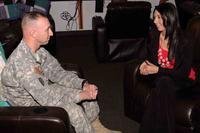Are you a healthcare professional by trade but an entrepreneur at heart? If so, you may be the perfect candidate to launch a home-based health services business. As a self-employed medical biller, claims assistance professional or medical transcriptionist, you can use your healthcare background while fulfilling your entrepreneurial ambitions.
Of course, it takes the right combination of experience, skills and marketing savvy to succeed with your own health services business. And you almost certainly won't get rich quick, says Liz Jones, owner of Medical Electronic Billing Service in Las Vegas and president of the Medical Association of Billers. "It is possible to make a good living, but you have to be willing to pay your dues first," Jones says.
Rick Benzel, author of Making Money in a Health Service Business on Your Home-Based PC, urges those who are interested in flying solo to proceed with caution. Before deciding whether medical billing, medical claims assistance or medical transcribing are viable career options for you, arm yourself with the facts. Here's some information to get you started.
Medical Billing
The Basics: Medical billers are in the business of making sure healthcare providers get paid, Benzel says. They file electronic insurance claims on behalf of doctors and other healthcare providers to insurance companies and government agencies like Medicare and Medicaid. Medical billers who are just learning to process claims could earn $6 to $8 an hour or less. Those who have a lot of experience and several large accounts could earn up to $60,000 a year.
The Forecast: Nurses, allied health professionals and other industry insiders are generally better-equipped than non-healthcare professionals to strike out on their own in medical billing. Not only are they familiar with the insurance system and medical terminology, but they have professional acquaintances who may be willing to give them work. According to Benzel, the most successful medical billers have expanded their services in the past few years to include "full practice management," which means they perform a range of accounting duties and give doctors advice on which HMOs and PPOs to join in order to maximize profits.
Tips: People interested in becoming medical billers should beware of scams. Some medical-billing software companies promise customers they'll be able to make big bucks quickly with the right purchase. "Basically, if it sounds too good to be true, it probably is," Jones says.
Medical Claims Assistance
The Basics: A medical claims assistance professional (CAP) works with consumers, not healthcare providers. A CAP reviews medical bills and instructs clients on proper payment, files claims with insurers and challenges any claims that are denied, according to the Alliance of Claims Assistance Professionals. Because older people who don't know how to interpret Medicare are most likely to need medical claims assistance, CAPs often recruit clients by speaking at nursing homes and in assisted-living centers, Benzel says. Healthcare professionals who are knowledgeable about insurance as well as bookkeepers and accountants may have the right backgrounds for claims assistance, Benzel says. "You have to be detail-oriented and understand Medicare, and you also need to be friendly and good at marketing," he says.
The Forecast: This field will grow as the population ages. Baby boomers are already hiring CAPs to handle their elderly parents' medical claims, especially when the boomers live far from their parents.
Tips: A person most likely to succeed as a CAP is committed to making a positive difference in healthcare and is dedicated to standing up for consumers, Benzel says. Many CAPs get experience by helping relatives and friends with their claims for free before "hanging out a shingle," he says. "In your first year, you'd be lucky if you made $5,000," he notes. "But if you get 50 or 100 clients, you can make $40 to $80 an hour."
Medical Transcribing
The Basics: A medical transcriptionist (MT) interprets and transcribes dictation by physicians and other healthcare providers regarding patient assessment, diagnosis and procedures. MTs edit dictated material for grammar and clarity. "Just being a good typist is not sufficient background for becoming an MT," Benzel says. It takes a year or two of preparation to become an MT, he says. Prospective MTs can learn medical terminology, formatting and other basics through community college classes or home-study programs.
The Forecast: The demand for medical transcriptionists is currently high, Benzel says. However, MTs may have to put in some time working through an agency or at a healthcare facility before launching independent careers. "It's difficult to start out home-based if you don't have a track record," he says.
Tips: Many MTs get paid by the word or by the line, and there is a lot of pressure to pump out reports. "The faster you type, the more money you'll earn," Benzel says. MTs typically make $20,000 to $40,000 a year. Many MTs specialize in a certain area of medicine, like neurology or pediatrics.

© Copyright 2024 Military.com. All rights reserved. This article may not be republished, rebroadcast, rewritten or otherwise distributed without written permission. To reprint or license this article or any content from Military.com, please submit your request here.










